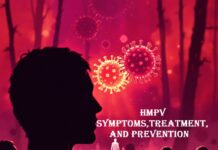The Impact of Drug Rehab on Austin Families
Drug addiction has a significant effect on a person’s family and other loved ones in addition to themselves. Addressing the wider effects of addiction therapy requires an understanding of how drug rehab programs might affect Austin families. You’ll go over five important topics in this post on how drug treatment affects Austin households.
1. Restoring Trust and Communication:
Drug treatment centers are aware of the profound effects that addiction can have on family dynamics, frequently leading to strained trust and communication styles. Numerous programs include family therapy and counseling sessions as essential elements of treatment to address these issues. Family members may share their emotions, worries, and disappointments in a secure and encouraging setting during these sessions, which promotes direct and honest communication. In order to overcome conflict and dysfunction in families, therapists work with families to identify and treat underlying problems such as codependency, enabling behaviors, and unresolved trauma.
Families are taught effective communication practices, boundary-setting procedures, and conflict-resolution approaches using evidence-based therapy techniques and treatments. Family therapy helps to strengthen familial relationships and offers a supporting foundation for the individual’s recovery journey by restoring trust and creating healthy communication habits. In general, family relationships must be addressed in drug recovery programs to support holistic healing and long-term sobriety.
2. Education and Support:
Family education and support services are essential components of drug treatment programs that address the emotional and psychological effects of addiction on the family. Many family members of those who are addicted feel a variety of feelings, such as anger, perplexity, remorse, and humiliation.
Drug treatment centers provide educational materials and support groups created especially to assist families in navigating these difficult feelings and realizing that addiction is a medical condition rather than a moral failing. Family members can learn about the root causes of addiction, the impact of drug misuse on the brain and behavior, and effective ways to help their loved one’s recovery through psychoeducation sessions, workshops, and support groups.
3. Strengthening Family Dynamics:
Activities and programs aimed at involving families can play a vital role in improving family dynamics and creating a supportive atmosphere for recovery in drug treatment settings. Recreational activities provide families the chance to interact, communicate, and enjoy themselves together. Examples of these activities include outdoor excursions and group workouts. These kinds of exercises can facilitate pleasant relationships, foster trust, and lower barriers between family members.
Furthermore, family therapy sessions at drug rehab centers provide a controlled setting for addressing underlying problems, enhancing communication abilities, and settling disputes within the family. Family members can acquire healthy coping mechanisms, better understand one another’s viewpoints, and work toward mending strained relationships and reestablishing trust through guided talks and treatments.
4. Addressing Co-Occurring Issues:
In drug recovery programs, treating co-occurring mental health disorders is crucial to fostering holistic healing and enhancing family interactions. Co-occurring mental health illnesses such as depression, anxiety, trauma, or personality disorders are common in people with drug use disorders. These concerns can worsen drug addiction disorders and lead to instability and conflict in families. Drug rehabilitation centers that provide integrated therapy for co-occurring disorders give patients all-encompassing care that concurrently treats mental health issues and addiction.
People can better understand the reasons behind their substance use and create healthy coping methods by treating underlying psychological difficulties. This promotes constructive adjustments in family relations in addition to aiding in recovery. Drug treatment clinics frequently include family therapy sessions to address co-occurring difficulties by teaching coping skills development, boundary-setting, and communication improvement. Family members can discover how mental health concerns affect their loved one’s behavior and how to successfully support and encourage them by participating in these therapeutic activities.
5. Promoting Long-Term Recovery:
The possibility of long-term success in any drug rehab in Austin rises when family involvement in the recovery process is prioritized. Actively including families in programs creates important support systems for patients receiving therapy. In addition to providing emotional support, family members take part in therapy sessions to address communication patterns, enabling behaviors, and familial dynamics that may be linked to substance misuse.
Conclusion:
Drug treatment centers prioritize the needs of families and loved ones in addition to the recovery of the person. These programs can assist Austin families in navigating the difficulties associated with addiction and foster healing and resilience by offering information, support, and treatment services. Drug treatment clinics in Austin that are family-focused enable people with addiction and their loved ones to obtain the assistance and tools they need to recover together.
Contents





